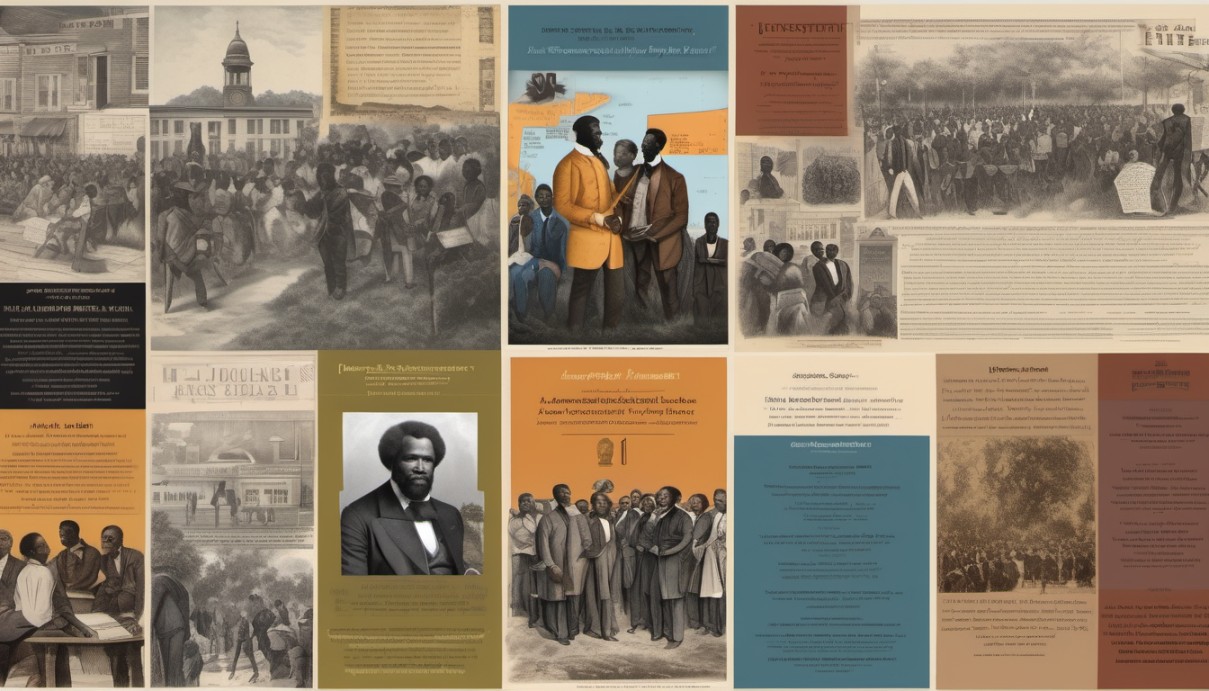On June 19th, 1865, Texas became the last state in the nation to proclaim enslaved African Americans free.
Exactly three years ago this past Monday, President Joe Biden signed the Juneteenth National Independence Day Act into law.
How did a once-obscure day, primarily celebrated within the African American community, move into the mainstream? What can we learn from this journey about the ideas of liberty and social change? (Here’s more about the history of the holiday specifically.)
To explore these questions, we turn to the insights of Fabio Rojas, Professor of Sociology at Indiana University Bloomington, and author of several books on the Black Studies Movement. Rojas noted three key lessons from the rise of Juneteenth: the development of a rich intellectual tradition within the Black community, the role of academia in social change, and the power of peaceful protests.
Let’s analyze each.
1. The Black Community Developed a Rich Intellectual Tradition
The rise of Juneteenth cannot be understood without considering the historical and intellectual context. For hundreds of years, Black Americans have been in the tragic position of having to continually defend their freedom and humanity. Out of this struggle emerged a rich tradition of intellectual thought.
Early abolitionist thought was rooted in the Christian tradition. Leaders like Frederick Douglass and Sojourner Truth drew on Biblical narratives to argue for the moral imperative of ending slavery. Over time, the intellectual foundations of Black liberation expanded, incorporating diverse philosophical and ideological perspectives.
RELATED: Black Seminoles and the Largest Slave Revolt in U.S. History
While the sources of this intellectual tradition vary, the desired outcomes are clear. The Black community, according to Rojas, has persistently advocated for an end to systemic injustices, including police violence and economic inequity. They’ve asked for the right to vote without intimidation or hindrance. They’ve sought the right to gather, organize, and worship without fear of threat or retribution.
In sum, for hundreds of years, they’ve advocated for the same basic freedoms that have long been advanced under the heading of classical liberalism: individual liberty and economic freedom.
2. Social Change Begins on Campus
Another lesson from the rise of Juneteenth is the role of the university in social change. Universities have long been incubators of ideas that later become mainstream. Rojas notes, “The story of Black studies is really a case of activists innovating around education, saying, ‘Look, the Black story is just not being told. There is exclusion in universities. This is one way to reverse that.’”
See our full video with Professor Rojas.
Historically, Black students and scholars have fought to create space for their perspectives within academia. From the establishment of Black Studies programs in the 1960s to today’s diversity initiatives, these efforts have reshaped educational institutions. They have provided a platform for the Black community to articulate their experiences and aspirations, challenging dominant narratives and advocating for systemic change.
Years later, these academic changes create a broader impact.
As Rojas explains, “What happens is that intellectuals and activists … debate in newspapers, newsletters, magazines … Today, it gets debated on Twitter and Facebook and blogs. And then those people educate young people who then, 20, 30, 40 years later, become the leaders.”
This process highlights the importance of academia in bringing about social change. And it highlights how crucial universities were in the fight for civil rights and in the creation of the Juneteenth holiday.
3. Peaceful Protests Create Change
The third lesson from the rise of Juneteenth is the effectiveness of peaceful protest. Although rioting, destruction of property, and some violence did occur in the protests of recent years, these are not the kind of protests classical liberalism defends. Nor is it what Martin Luther King, Jr. famously stood for.
For more about classical liberalism, see:
Importantly, Rojas’ research on Black student activism shows a clear distinction between the outcomes of disruptive versus non-disruptive (i.e. non-violent and not destructive to property) protests. He found that “Non-disruptive protests had a statistically significant effect,” while disruptive protests did not. This data suggests that peaceful demonstrations are more likely to result in tangible changes.
The right to peacefully protest is a cornerstone of classical liberalism, reflecting foundational ideas about the right to assemble, to speak, and to petition for a redress of grievances. Juneteenth itself is a testament to the power of peace.
Looking Forward by Looking Back
The journey of Juneteenth from little-known commemoration to national holiday teaches us about the power of intellectual traditions, social change, and peaceful protests. It reminds us that the fight for liberty is ongoing and that college campuses and non-violent action remain essential tools in the pursuit of justice.
As we celebrate Juneteenth, we honor not only the freedom of enslaved African Americans but also the enduring spirit of activism that continues to inspire movements for equality and justice.
If activism on behalf of freedom is of particular interest to you, check out Students For Liberty’s Local Coordinator program. SFL understands the importance of the university in creating social change, and seeks to develop and empower the next generation of leaders for liberty in that context. Learn more here:
This piece solely expresses the opinion of the author and not necessarily the organization as a whole. Students For Liberty is committed to facilitating a broad dialogue for liberty, representing a variety of opinions.


